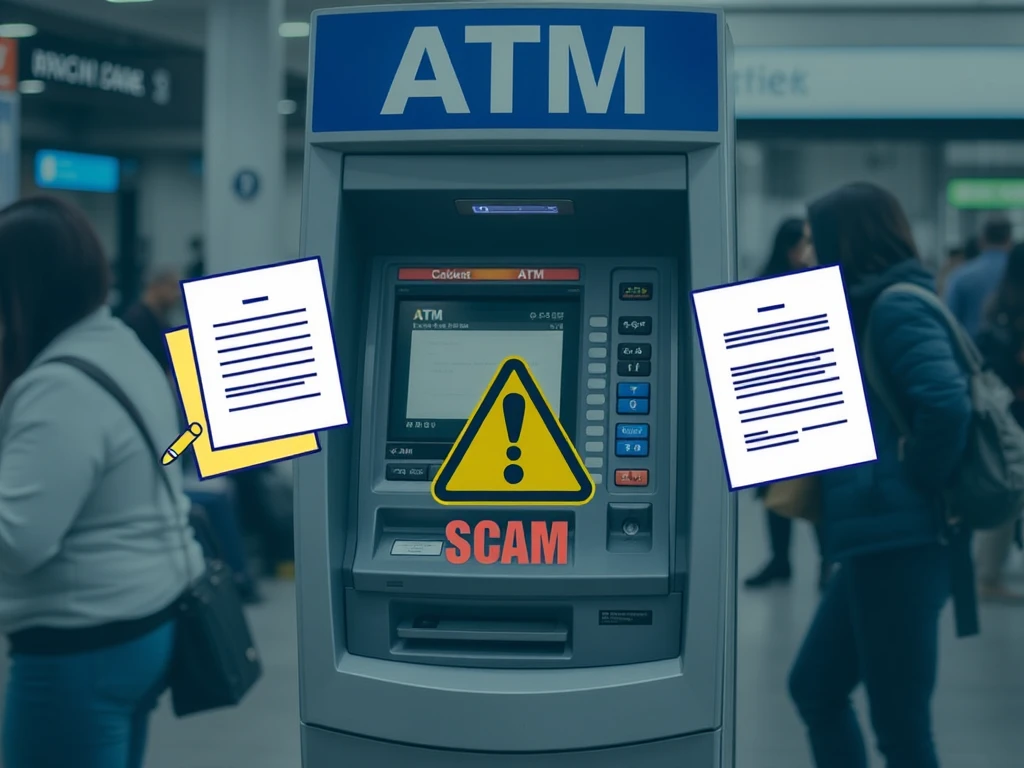Coinme Faces Harsh $300K Fine Over California Crypto ATM Laws

Recent enforcement action highlights the growing scrutiny on the cryptocurrency industry. Seattle-based crypto ATM operator Coinme has agreed to a significant penalty for violating California’s crypto ATM laws, signaling a clear message from regulators.
Coinme Fine Imposed by California DFPI
The California Department of Financial Protection and Innovation (DFPI) announced a $300,000 penalty against Coinme. This marks the state agency’s first enforcement action under the relatively new Digital Financial Assets Law, enacted last year. The core violations cited were:
- Exceeding the state’s daily transaction limit of $1,000 per customer at its crypto ATM kiosks.
- Failing to include required disclosures on customer receipts provided at its locations within California grocery and convenience stores.
As part of the consent order, Coinme will pay the $300,000 penalty. This includes $51,700 in restitution designated for an elderly California resident who reported being a victim of a scam involving a Coinme kiosk.
Why California DFPI is Taking Action
According to KC Mohseni, a DFPI commissioner, this enforcement action aims to send a strong signal to all crypto kiosk operators. The state is serious about requiring digital asset companies to adhere to rules designed to protect residents, particularly vulnerable populations, from fraudulent schemes. The Digital Financial Assets Law was specifically created to address risks associated with crypto kiosks through clear operator regulations.
The Rising Threat of Crypto ATM Scams
The context for these regulations and enforcement actions is the alarming rise in crypto ATM scams. Scammers frequently pressure victims into purchasing cryptocurrency at kiosks and immediately sending it to the fraudster’s wallet. Data from the FBI highlights the scale of this problem:
- In 2024, the FBI received nearly 11,000 complaints related to crypto ATM scams, reporting over $246 million in losses.
- This represents a 31% increase in reported losses compared to 2023.
- Two-thirds of the reported scam victims were individuals over the age of 60.
These statistics underscore the importance of stringent crypto regulation and enforcement actions like the Coinme fine to protect consumers.
Broader Context: Crypto ATM Regulation Efforts
California is not the only jurisdiction taking steps regarding crypto ATMs. Around the world, authorities are implementing measures or investigating their use:
- Spokane, Washington: The city recently banned crypto ATMs entirely, citing concerns about scams and money laundering, with police noting funds potentially going to illicit destinations.
- Australia: Federal police have contacted over 90 citizens as part of a crackdown on criminal use of crypto ATMs, including both victims of scams (like pig butchering) and suspected offenders.
- Texas: A county sheriff reportedly used a power tool to disable a local crypto kiosk after a family allegedly lost $25,000 in a scam.
These incidents illustrate a global trend towards increased scrutiny and regulation of crypto ATM operations.
What This Means for Crypto ATM Operators and Users
For operators like Coinme, the Coinme fine from the California DFPI serves as a clear warning: compliance with local crypto ATM laws is non-negotiable. Companies must ensure they understand and adhere to specific state-level regulations, including transaction limits, disclosure requirements, and anti-fraud measures.
For users, the increased focus on crypto ATM scams highlights the need for caution. Always be wary of anyone instructing you to send cryptocurrency via an ATM, especially if they are unknown to you or are pressuring you. Legitimate transactions rarely require this method, and it is a common tactic used by fraudsters.
Conclusion: The Push for Responsible Crypto Operations
The $300,000 Coinme fine in California underscores the growing regulatory pressure on the crypto industry, particularly concerning public access points like ATMs. As crypto ATM scams continue to rise, regulatory bodies like the California DFPI are likely to increase enforcement of crypto ATM laws. This push for greater compliance and responsible operation is a necessary step to protect consumers and build trust in the digital asset space, ensuring that crypto regulation keeps pace with technological adoption.








